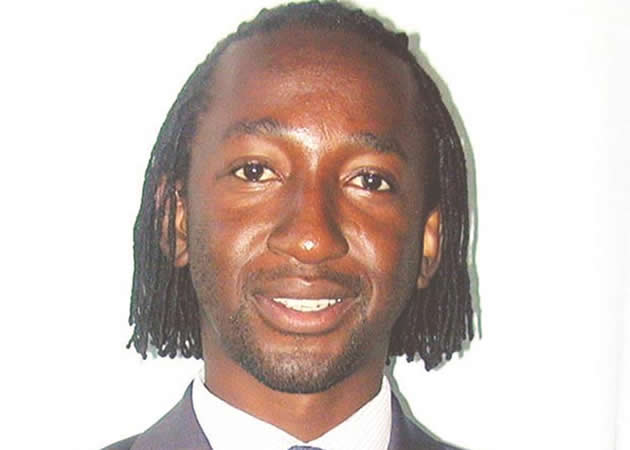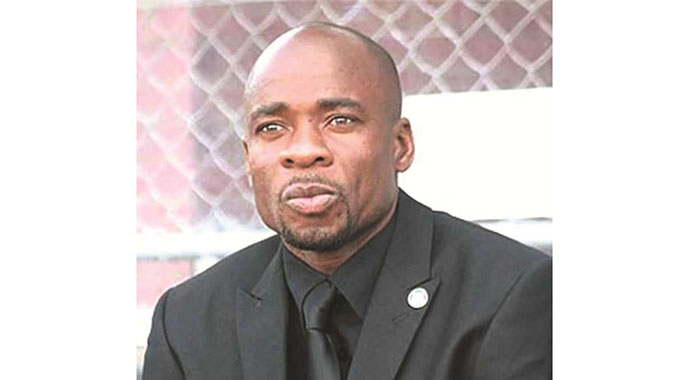PLATINUM RIP-OFF

 Robson Sharuko Senior Sports Editor
Robson Sharuko Senior Sports Editor
FC Platinum could have been robbed of an historic maiden Premiership title last year by old-fashioned PSL rules and regulations, which are not enforceable in world football because they are in direct conflict with provisions of the FIFA Disciplinary Code, in what might be an explosive indictment of the country’s national game.
The Zvishavane miners finished second in the championship race, two points behind CAPS United with the champions overhauling a four-point lead, which Norman Mapeza’s men enjoyed over the Green Machine at the halfway stage, to power their way to their first league title in 11 years.
It meant FC Platinum missed a golden opportunity to make history, as the first football club outside the country’s two biggest cities, Harare and Bulawayo, to be crowned champions and follow in the footsteps of the immortals of St Paul’s Musami who were crowned kings in 1966.
Had FC Platinum — who have now finished second, seventh, fourth, fourth, third and second in their time in the domestic Premiership — made the huge leap to become champions, they would have provided a fitting conclusion to mark the 50th anniversary of the year St Paul’s Musami turned themselves into champions.
But the Zvishavane miners were beaten to the post last year by a rampant CAPS United, relegated again to bridesmaids and the feast of crumbs that come with coming second, with Makepekepe completing their adventure on 63 points while FC Platinum could only get 61 points in their campaign.
The turning point of that campaign might have come in Round 19 when FC Platinum hosted Mutare City Rovers at Mandava, with the limping visitors, somehow, punching above their weight in that match and forcing a 1-1 draw, just two weeks before the Eastern Highlands side crashed to a 1-4 defeat to CAPS United in Harare in what was their next away match after their visit to Zvishavane.
l The PSL said Mutare City were guilty of contravening Order 33.4 of their Rules and Regulations which states that, “when a player has accumulated three yellow cards he shall automatically be suspended for one official match (and) such suspension should be applicable on the next official match.’’
l The top-flight league’s leaders said their decision to deduct three points from Mutare Rovers’ tally, and also leave FC Platinum with the point they earned from that drawn match, was derived from Order 36.1.4 of their Rules and Regulations which states that, ‘’the use of an unregistered/ineligible player three points will be deducted and thrown away and a fine set by the League from time to time (applied).’’
The two points which FC Platinum dropped, in a game in which their opponents’ cause was helped by the use of an ineligible player, proved the difference in the championship race, which they lost by two points, to eventual winners CAPS United.
Given FC Platinum completed the championship race with a better goal difference (+23 from 38 goals scored and 15 conceded) than CAPS United (+21 from 42 goals scored and 21 conceded), the Zvishavane miners can justifiably claim they would have been champions had they picked maximum points against Mutare City and not been victims of playing against a team that derived value from using an ineligible player in that game.
And, a special investigation by The Herald in the wake of the drama related to the controversy sparked by the collapsed goalposts at Ascot which led to the abandonment of a league match Dynamos were comfortably leading 4-0 before the hour mark, appears to suggest that FC Platinum were victims of old-fashioned PSL Rules and Regulations whose application is illegal in world football because they are in direct conflict with the FIFA Disciplinary Code.
Article 55, as read with Article 31, of the FIFA Disciplinary Code duly state that:
55.1 — IF A PLAYER TAKES PART IN AN OFFICIAL MATCH DESPITE BEING INELIGIBLE, HIS TEAM WILL BE SANCTIONED BY FORFEITING THE MATCH (CF. Art. 31)
- 31.1 — A TEAM SANCTIONED WITH A FORFEIT IS CONSIDERED TO HAVE LOST THE MATCH BY 3-0.
- 31.2 — IF THE GOAL DIFFERENCE AT THE END OF THE MATCH IS GREATER THAN THREE, THE RESULT ON THE PITCH IS UPHELD.
- 55.2 — IF A PLAYER TAKES PART IN A FRIENDLY MATCH DESPITE BEING INELIGIBLE, HIS TEAM WILL BE SANCTIONED BY FORFEITING THE MATCH
Grahame Anderson, a British barrister at Littleton Chambers and a member of the Littleton’s Sports Law Group, who specialises in sports law, who recent sports practice has included advising on the impact of the FIFA Working with Intermediaries Regulations, published an article on June 10, 2015, for the authoritative LawInSport — an independent publisher used by sports lawyers, sports business executives, athletes and academics to stay informed on the latest legal issues and development around sport — which is certainly revealing in this case titled — “When is there a right to replay for a football match?.’’
Anderson, using FIFA and UEFA regulations, which tally, noted that, when a team uses an ineligible player in a match, the game is forfeited. ‘’Given the same UEFA Regulations, it is a strict liability offence to have played a suspended player in a European club football competition; the match is automatically declared forfeit and it will be awarded 3-0 to the innocent club unless the score was more favourable to the innocent team, in which case the actual result stands,’’ he argued.
“This approach has been consistently applied by UEFA. For example, in August 2012 a UEFA Europa League third qualifying round first leg match was awarded 3-0 to ND Mura when their opponents, FC Arsenal Kyiv, fielded a suspended player.’’ Adam Lovatt, another lawyer specialising in sports law with IMG, also argued on the same subject in an article published three years ago.
“Back in September 2011, Celtic benefited from Swiss club, FC Sion, being thrown out of the Europa League for fielding ineligible players in a play-off match between the sides,’’ he noted.
‘’Sion won the qualifying tie 3-1 on aggregate, but UEFA, following an appeal from Celtic, awarded Celtic a 3-0 victory for each of the home and away legs of the tie with Celtic therefore proceeding to the group stages of the competition. ‘’Sion took UEFA to the Court of Arbitration for Sport in an attempt to have the decision overturned; CAS found that there were no grounds to reinstate FC Sion in the Europa League and that the UEFA decision should stand.’’ Clearly, the match between FC Platinum and Mutare City Rovers should have been forfeited with the Zvishavane side being awarded the game on a 3-0 scoreline.
And, to just show how FC Platinum could have been given a raw deal, the following makes up for some interesting reading:
• The point Mutare City picked at Mandava was one of just two points, out of a possible 21 on the road in the final seven matches of last year’s campaign, with the club losing five of those matches (1-4 against CAPS; 0-1 against Bulawayo City; 0-2 against Chicken Inn; 0-2 against DeMbare and 0-2 against Ngezi Platinum), failing to score in five of those games, and only picking another point in the goalless draw against How Mine in Bulawayo.
• Mutare City were found guilty of using an ineligible player, Kudakwashe Gurure who should have been suspended for the match against FC Platinum for having picked three yellow cards prior to that game, and were docked three points from their tally while the Zvishavane miners were left with the point they earned in that drawn game. Others could argue that the PSL have their own rules and regulations and they are all that matter but, as clearly spelt out by FIFA in their Disciplinary Code, there is no way that association football in this world could be played using rules and regulations that are in conflict with the world football governing body.
‘’The FIFA Disciplinary Code applies to every match and competition organised by FIFA (and) beyond this scope, it also applies to any breach of FIFA regulations that does not fall under the jurisdiction of any other body (and, crucially) the following are subject to this code — (a) Associations; (b) Members of Associations, in particular the clubs; (c) Officials; (d) Players; (e) Match officials (g) Anyone with an authorisation from FIFA, in particular with regard to a match, competition or other event organised by FIFA,’’ the FIFA Code says.








Comments